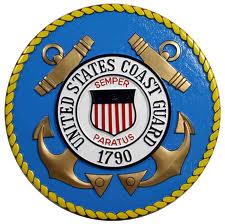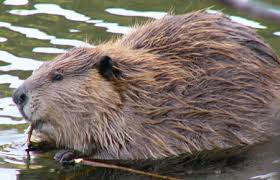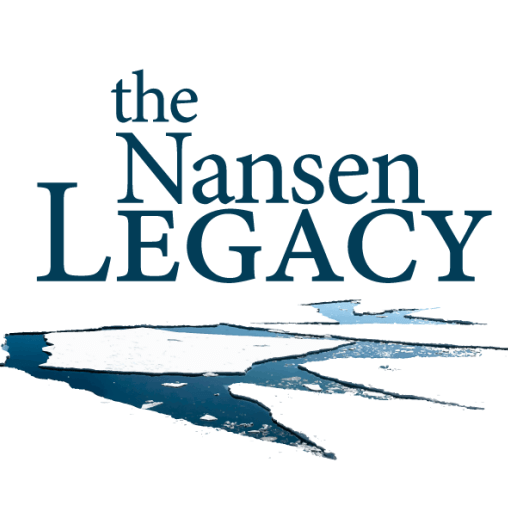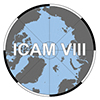|
|
|
|
|
|
|
|
This half-day program will focus on the capabilities of the EarthScope Transportable Array and the impact it is having on scientific research and operational monitoring in areas as diverse as earthquakes, weather forecasting, volcanoes, tsunamis, and ecosystems. The hosts are particularly interested in exploring inter-agency / multi-agency interests and opportunities for how the Transportable Array observing capability can be used, particularly with respect to the compatibility of different observing interests. The National Science Foundation has committed only to a short duration deployment but is open to broadening the application to other science observations for longer durations, if the obligation to remove the stations is shared or undertaken by other stakeholders.
- Addressing the energy field of the future;
- Defense energy systems in the North;
- Natural hazards and aerospace/defense;
- Empowering Alaska's entrepreneurs;
- Navigating the changing Arctic; and,
- Developing local and global energy solutions.
|
Media
 Coast Guard Uses Satellites, Sensors to Back Arctic-Based Comms, Situational Awareness. Coast Guard Uses Satellites, Sensors to Back Arctic-Based Comms, Situational Awareness. The U.S. Coast Guard uses sensor technologies and satellites to perform communications, situational awareness, navigation and remote sensing operations in the Arctic region, National Defense reported Tuesday. A 2018 report by the Homeland Security Operational Analysis Center says some of the technologies the Coast Guard uses for navigation and domain awareness include personal locator beacons; long-rang tracking and identification systems aboard aircraft and cutters; satellite imagery sources; and the International Cospas-Sarsat satellite system for search-and-rescue missions. ExecutiveBiz
Call for More Indian Research Stations in Arctic. As the world grapples with the challenge of climate change, a top Indian scientist has called for the opening of more Indian research stations in the Arctic. "India's observer status in the Arctic Council is very important," K. Vijay Raghavan, Principal Scientific Advisor to the Indian government, said at a seminar on "Finland and India: Engaging the Arctic" here on Tuesday. "I hope India will set up more research stations in the Arctic," Raghavan said. The Quint
 Beaver Bounty: Invasive Species Within Canada? Beaver Bounty: Invasive Species Within Canada? The industrious beaver, the iconic national symbol of Canada. It was the search for beaver pelts that opened up Canada by explorers seeking primarily new areas and sources for the fur to supply a demanding world market, and which in one sense helped in the creation of the country of Canada. But... RCI Net
Arctic Seas are the Planet's Cleanest, Say Russian Scientists. The Arctic's seas are the cleanest seas on the planet, Deputy Director of the Murmansk Marine Biology Institute Dmitry Ishkulov told TASS, commenting on results of scientific studies, which the institute organized in 2017. "Despite the active development and exploitation of the North, the seas here remain among the planet's cleanest seas," he said. In 2017, the Institute's scientists organized several big expeditions to the Arctic. For the first time over many years, or even decades, those were fundamental studies - not applied tasks. TASS
|
|
Future Events
The Effects of Climate Change on the World's Oceans, June 4-8, 2018 (Washington, DC USA). The 4th International Symposium will bring together experts from around the world to better understand climate impacts on ocean ecosystems - and how to respond. The event is hosted by a variety of groups including International Council for the Exploration of the Sea (ICES), N. Pacific Marine Science Organization (PICES), Intergovernmental Oceanographic Commission of UNESCO (IOC), and Food and Agriculture Organization of the United Nations (FAO). Session 16 includes Fran Ulmer, Diana Bull, Apurva Dave, Lawson Brigham, and Esther Babson, among others. 
Background: The Nansen Legacy, June 6, 2018 (Washington, DC. USA). The Royal Norwegian Embassy, in cooperation with The  National Academy of Sciences and The Norwegian Academy of Science and Letters, is pleased to invite you to a presentation of the Nansen Legacy project, followed by a discussion focusing on how North American (and other) scientists can join the effort. National Academy of Sciences and The Norwegian Academy of Science and Letters, is pleased to invite you to a presentation of the Nansen Legacy project, followed by a discussion focusing on how North American (and other) scientists can join the effort. The changing Arctic Ocean affects climate and ecosystems on a Pan-Arctic scale. These effects are prominent on the two large and productive inflow shelves, the Chukchi and the Barents Sea. This gives Norway and the U.S. particular and comparative responsibilities to monitor and study the changes in the gateways to the Arctic Basin. It is therefore timely and necessary to build or strengthen collaborative links to enable synoptic or comparable observations opening for synthesis across the Arctic Ocean. Please RSVP by May 31st to lea.bjorgul@mfa.no
Vision on Marine Infrastructure, June 11, 2018, 1:00-3:00 pm (Washington, DC
).
The U.S. Committee on the Marine Transportation System and its Marine Transportation System Federal partners will share their visions and priorities on maritime infrastructure, which refers to physical infrastructure, informational infrastructure (such as aids to navigation, nautical charts, and real-time meteorological and oceanographic services), and mariner needs. Open to the public, but RSVP is required. Please contact Jaya.Ghosh@cmts.gov by June 6, 2018 to RSVP. See here for additional details.
 POLAR 2018, June 15-27, 2018 (Davos, Switzerland). POLAR2018 is a joint event from the Scientific Committee on Antarctic Research (SCAR) and the International Arctic Science Committee (IASC). The SCAR meetings, the ASSW and the Open Science Conference will be hosted by the Swiss Federal Institute for Forest, Snow and Landscape Research WSL under the patronage of the Swiss Committee on Polar and High Altitude Research. The WSL Institute for Snow and Avalanche Research SLF is organizing POLAR2018. POLAR 2018, June 15-27, 2018 (Davos, Switzerland). POLAR2018 is a joint event from the Scientific Committee on Antarctic Research (SCAR) and the International Arctic Science Committee (IASC). The SCAR meetings, the ASSW and the Open Science Conference will be hosted by the Swiss Federal Institute for Forest, Snow and Landscape Research WSL under the patronage of the Swiss Committee on Polar and High Altitude Research. The WSL Institute for Snow and Avalanche Research SLF is organizing POLAR2018.
From Entering the Field to Taking the Helm, Women's Perspectives on Polar Research, June 20, 2018 (Kongresszentrum Davos, Switzerland). This event is hosted by ARCUS and co-sponsored by USARC. Research findings are shaping our understanding of the issues that women face in technical fields, particularly those with strong connections to fieldwork. Concerns include a deficit of female leadership due to the so-called "leaky pipeline," a lack of safety and inclusivity at field locations, and explorations of ways in which research agendas have discounted contributions of women. Despite historical barriers to participation in polar field work, women have made outstanding contributions to polar physical, biological and social sciences, as well as to community-level efforts to coordinate and communicate science. In the past decade, women have stepped into leadership roles at polar institutions. Yet evidence of persistent challenges, reflected both in academic studies and media reports, compels us to examine the sources of those challenges and to explore solutions to ensure a bright future for all those who wish to engage in polar research.
5th European Conference on Permafrost, June 23-July 1, 2018 (Chamonix-Mont Blanc, France). In the continuation of the International and Regional conferences convened by the International Permafrost Association, the 5th European Conference on Permafrost (EUCOP 2018) will be held in Chamonix-Mont Blanc, France, 23rd June - 1st July 2018. The conference aims at covering all relevant aspects of permafrost research, engineering and outreach on a global and regional level. Conference website: here.
Arctic Observing Summit 2018, June 24-26, 2018 (Davos, Switzerland). The Arctic Observing Summit (AOS) is a high-level biennial summit that provides a platform to address urgent and broadly recognized needs of Arctic observing across all components of the Arctic system. AOS 2018 will be held in Davos, Switzerland ( June 24-26) and will focus on pressing issues in the implementation and support of sustained observations that can be addressed through a business-case lens. To that end, short submissions are requested that address any and all aspects of the overarching theme and sub-themes. Additional information can be found here.
17th International Congress of Circumpolar Health (ICCH17), August 12-15, 2018 (Copenhagen, Denmark). The ICCH congresses are held every third year in different locations in the circumpolar area and represent the largest scientific meetings worldwide on circumpolar health. The ICCH congresses serve as the primary source of information exchange and scholarly communication in issues relating to circumpolar health. More than 750 participants generally register and participate in each Congress, and more than 400 scientific papers or posters are usually presented.
UArctic Congress 2018, September 3-7, 2018 (Oulu and Helsinki, Finland). The UArctic Congress 2018 will bring together key UArctic meetings and a science conference into one single gathering, including business meetings of the Council of UArctic, Rectors' Forum, Student Forum, and Thematic Networks & UArctic Institutes Leadership Team. The Congress is an integral part of the Finland's Arctic Council chairmanship program, and open to the public. The event will highlight the themes and priorities of the Finnish chairmanship, including the goals of the United Nations' 2030 Agenda for Sustainable Development, and the Paris Agreement under the UN Framework Convention on Climate Change.
Scientific Exploration of the Arctic and North Pacific (SEA-NorP), September 25-27, 2018 (Mt. Hood, Oregon USA). This workshop will include discussion of hypotheses that can be tested by scientific drilling in the region, the technology necessary to achieve those goals, ideal sites for drilling based on existing data, and where additional site survey data is needed. The goal of the workshop organizers is that multiple proposals will be initiated at the workshop, both for full cruise legs and for shorter, targeted expeditions around the following themes: ocean gateways, geohazards, volatile cycling, ice histories at transition zones, biosphere and climate.
The second Arctic Biodiversity Congress is hosted by the Conservation of Arctic Flora and Fauna (CAFF), the biodiversity working group of the Arctic Council, and the Ministry of the Environment, Finland. The second Arctic Biodiversity Congress will build on the success of the first Congress, held in 2014 in Trondheim, Norway, and will bring together scientists, policymakers government officials, Indigenous representatives, Traditional Knowledge holders, industry, non-governmental organizations, and others to promote the conservation and sustainable use of Arctic biodiversity.
|
|

  
4350 N. Fairfax Drive, Suite 510
Arlington, VA 22203, USA
External links in this publication, and on the USARC's World Wide Web site ( www.arctic.gov) do not constitute endorsement by the US Arctic Research Commission of external Web sites or the information, products or services contained therein. For other than authorized activities, the USARC does not exercise any editorial control over the information you may find at these locations. These links are provided consistent with the stated purpose of this newsletter and the USARC Web site.
|
|
|
|
|
|
|
|
|
 Coast Guard Uses Satellites, Sensors to Back Arctic-Based Comms, Situational Awareness. The U.S. Coast Guard uses sensor technologies and satellites to perform communications, situational awareness, navigation and remote sensing operations in the Arctic region, National Defense reported Tuesday. A 2018 report by the Homeland Security Operational Analysis Center says some of the technologies the Coast Guard uses for navigation and domain awareness include personal locator beacons; long-rang tracking and identification systems aboard aircraft and cutters; satellite imagery sources; and the International Cospas-Sarsat satellite system for search-and-rescue missions. ExecutiveBiz
Coast Guard Uses Satellites, Sensors to Back Arctic-Based Comms, Situational Awareness. The U.S. Coast Guard uses sensor technologies and satellites to perform communications, situational awareness, navigation and remote sensing operations in the Arctic region, National Defense reported Tuesday. A 2018 report by the Homeland Security Operational Analysis Center says some of the technologies the Coast Guard uses for navigation and domain awareness include personal locator beacons; long-rang tracking and identification systems aboard aircraft and cutters; satellite imagery sources; and the International Cospas-Sarsat satellite system for search-and-rescue missions. ExecutiveBiz Beaver Bounty: Invasive Species Within Canada? The industrious beaver, the iconic national symbol of Canada. It was the search for beaver pelts that opened up Canada by explorers seeking primarily new areas and sources for the fur to supply a demanding world market, and which in one sense helped in the creation of the country of Canada. But... RCI Net
Beaver Bounty: Invasive Species Within Canada? The industrious beaver, the iconic national symbol of Canada. It was the search for beaver pelts that opened up Canada by explorers seeking primarily new areas and sources for the fur to supply a demanding world market, and which in one sense helped in the creation of the country of Canada. But... RCI Net

 National Academy of Sciences and The Norwegian Academy of Science and Letters, is pleased to invite you to a presentation of the Nansen Legacy project, followed by a discussion focusing on how North American (and other) scientists can join the effort.
National Academy of Sciences and The Norwegian Academy of Science and Letters, is pleased to invite you to a presentation of the Nansen Legacy project, followed by a discussion focusing on how North American (and other) scientists can join the effort. 

